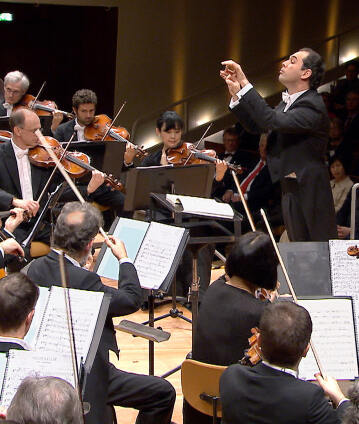Interview
Nikolai Lugansky in conversation with Christoph Igelbrink Tugan Sokhiev et Nikolaï Lugansky

Le cliché veut que la musique russe soit mélancolique et volumineuse. Tugan Sokhiev, directeur musical du théâtre Bolchoï, apporte ici la preuve du contraire. Schéhérazade de Rimsky-Korsakov recrée la magie de l’Orient grâce à une splendeur de couleurs impressionnistes, tandis que la Rhapsodie sur un thème de Paganini de Rachmaninov cultive, au-delà de son immense virtuosité, un charme teinté d’ironie. En soliste, le pianiste Nikolaï Lugansky fait ses débuts à la Philharmonie.
Berliner Philharmoniker
Tugan Sokhiev
Nikolaï Luganski
© 2016 Berlin Phil Media GmbH
Interviews liées au concert